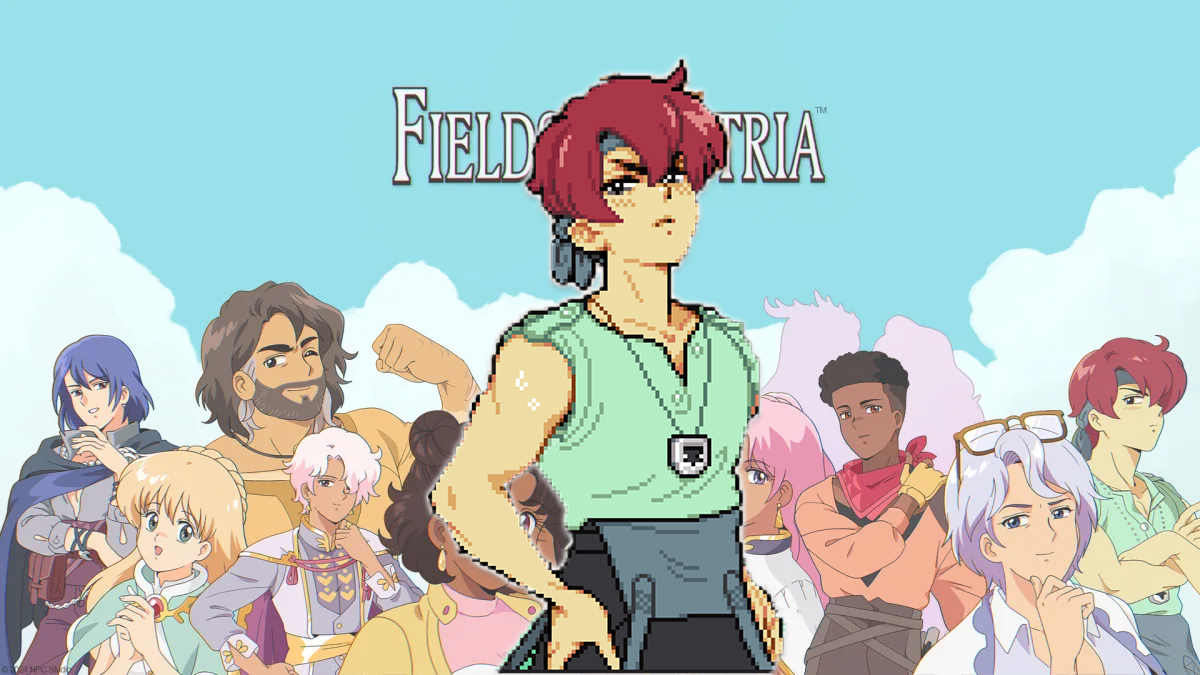Movie marketing campaigns rely on ever-changing social media platforms more than ever. Given the changing landscape and how movies are promoted, now is as good a time as any to look at some of the greatest marketing campaigns that got people invested in films before they were even released.
12 – Longlegs
Longlegs is the most recent release on this list, and it’s here for a good reason. Between the incredibly eerie Birthday Murders website, exclusive theatrical trailers, and intense and very bride YouTube videos that gave up little to nothing about the plot, Longlegs had some incredibly compelling marketing. The trailers and clips released before the film played into the lost media and analog horror trend that has grown increasingly popular online. With the film’s backdrop being the 1990s, it’s no surprise that Longlegs took the visual style of VHS and Polaroid photos and ran with it. The marketing for the film elevated the atmosphere of the movie, which had viewers immersed. before they even saw the movie
The marketing stunts were more than just online – the team at NEON even hired a bloody nun to attend a screening of the film as a guardian for anyone who wanted to see the movie but was under 17. Longlegs was an intense movie elevated by the mystery and dark undertones of its marketing, making it a very new but worthy addition to this list.
11 – SMILE
SMILE is Parker Finn’s feature directorial debut, based on his short film Laura Hasn’t Slept. The concept of SMILE is frightening enough on its own, as the film revolves around a curse that makes those under its spell see everyone smiling in unsettling ways. The marketing campaign for the film put audiences into the perspective of the main character, as Paramount would hire actors to attend sports games and other televised events and smile menacingly directly into whatever camera was in their line of sight.
The use of these creepy actors was an effective marketing trope that not only unsettled people who might’ve caught it on television but also helped to get people curious about the movie. SMILE was a decent box office success with a plot and scares that were eerily similar to the impressive guerilla marketing techniques that were used to promote the film.
10 – Suicide Squad
Suicide Squad is a unique case, as it’s one of the movie marketing campaigns that didn’t match up at all with the final product that viewers would go to see in theaters in August 2016. The marketing for Suicide Squad, specifically its trailers, conveyed a tone and story that is almost entirely different than what the movie would be like. However, the aesthetic and tone that the film was marketed with got people excited to see the film.
The San Diego Comic-Con “first look” trailer is what really captivated fans of the early DCEU. David Ayer was hot off of darker and more grounded films such as Fury and End of Watch, and the trailer matched the tone of his previous projects enough to make fans think they were getting something that the comic book movie genre hadn’t delivered before. The promise of a dark, gritty, and violent comic book film wouldn’t come to pass, but the marketing was special.
9 – The Ring

The 2002 film The Ring, much like other horror movies on this list, used its incredibly creepy and analog-based premise to immerse viewers in the mythology of the film. The tape that the film centers around was shown during late-night programs on television. Before the age of streaming and social media, marketing stunts like this one would no doubt leave viewers confused, scared, and, more than anything, curious about what it meant. The tape would be played with no reference to the movie, making the horror feel just a bit more real.
Since the movie was marketed during the early days of the Internet, a creepy flash website that has thankfully been archived was also created to promote it. Everything in the film’s story is treated as real, and it’s a fun piece of movie history to look back on.
8 – Cloverfield
Cloverfield released its first trailer without a title during Thursday night preview screenings of Michael Bay’s first Transformers movie in 2007. Providing a website address for the curious and initiated, Cloverfield’s marketing would send fans of J.J. Abrams down a rabbit hole of intrigue. Between a website for the fictional Slusho brand of drinks, individual MySpace profiles for the cast of the film, and creepy Easter eggs that hinted at the monster at the center of the film, Cloverfield had some truly immersive marketing that would make the film stand out.
The film’s marketing material presented the story as something for viewers to solve before the film even came out, and it is a rare occurrence of promotional material adding context to a story. The found-footage creature features that Cloverfield ended up being hardly provided any answers or context, instead leaving the backstory and events leading up to the monster’s arrival something for fans to solve using the various websites and promo.
7- Deadpool

The original 2016 Deadpool film was incredibly successful and broke many records as an R-rated movie, but the years leading up to the release of the film were just as legendary. Perhaps the most infamous aspect that helped to hype the film up was the leaking of test footage in July 2014. This short action sequence was made entirely in CGI as an attempt to convince higher-ups at 20th Century Fox to greenlight the film. Deadpool actor and Executive Producer Ryan Reynolds has made many jokes but never outright confirmed his involvement in the leaked footage, which got such positive responses online that Fox ended up allowing Director Tim Miller and Co. to make the film.
From there, Deadpool would continue its legendary marketing run with billboards and fake trailers that made the film look like a romantic comedy to keep in theme with its 2016 Valentine’s Day release date. While there were definitely hints of the romance genre in the film, it was anything but what some people who were tricked into seeing it thought it was. The end result is one of the highest-grossing R-rated movies of all time.
Related: Every Wolverine Movie, Ranked From Worst to Best
6 – Paranormal Activity

Paranormal Activity was very similar to The Blair Witch Project before it – a found-footage horror film with marketing that treated the events of the story as real. However, perhaps the most genius marketing for the film was the website that allowed people to vote on whether or not the film would be screened in their city. The supposed elusiveness of the film would only lead to more hype for its eventual release and the website that would drop after the premiere, immediately leading to 1 million votes. Whether those votes actually determined the wide release schedule of the film or not is unknown, but it was definitely an impressive marketing campaign that helped to lead the horror movie to box office success.
5 & 4 – Barbenheimer (Barbie and Oppenheimer)

These two films occupy the same spot on this list largely due to how much the two films owe each other for their box office success. When it was first realized that Barbie and Oppenheimer, two films that couldn’t be more different tonally and structurally, would be released on the same day, the internet took the meme potential and ran with it. Dubbed “Barbenheimer,” instead of making the two films compete against each other, the simultaneous releases were made an event, with people encouraging each other to see them both on the same day.
The movie marketing campaigns for these films were entirely separate, and this trend was entirely social media-driven, helping to make movies and trips to the theater feel like events again. Barbenheimer was an interesting phenomenon, and the movie marketing campaign will not soon be replicated, though not for lack of trying.
3 – Psycho

Being the oldest film on this list, Psycho was one of the first horror movies to propel itself in marketing the shock-value content of the film. Perhaps the most notable thing that is remembered for the advertising of Psycho is the posters that depicted the film’s director and the statement that no one would be allowed to be seated for the film after the showtime. While some theaters thought this would be a disadvantage and discourage patrons from seeing the film, it instead did quite the opposite.
The allure of a film that was strict with its audience made the relationship between filmmaker and film-goer feel that much more connected. Pyscho is a legendary film, and while the twist involving Norman Bates is well known now, it used to be a much-kept secret that was bolstered by the marketing campaign.
2 – The Dark Knight

The Dark Knight marketing campaign not only got fans insanely excited for the follow-up to 2005’s Batman Begins, but it also added extra compelling context for the way Gotham City would be portrayed in the 2008 sequel. Between Jokerized newspaper articles and puzzles solved by fan engagement that would lead to rewards such as the first look at the Joker, The Dark Knight’s marketing campaign was extraordinary.
There were also the real-world Harvey Dent campaign trail stops across the country that would make the world of Gotham feel that much more real. There hasn’t been a comic book movie marketing campaign like The Dark Knight, and Christopher Nolan’s second entry in The Dark Knight Trilogy is still considered one of the best the genre has to offer.
1 – The Blair Witch Project

The Blair Witch Project set a precedent for movie promotion and viral marketing that would be mimicked for years to come. Besides the initial Sundance premiere getting divisive reactions, the found-footage genre was still relatively unknown, and this was the first major film to introduce the type of film that would soon become one of the bigger types of horror films in the years to come.
The film also used unknown actors and a minuscule budget to its advantage, making it feel real to audiences and creating viral websites that helped mythologize the witch the film talks about. People would even grow concerned for the safety of the actors, unsure if the events of the film actually transpired. The Blair Witch Project had a genius movie marketing campaign that is easily the greatest of all time.
And those are the 12 greatest movie marketing campaigns of all time.






Published: Aug 6, 2024 08:44 am